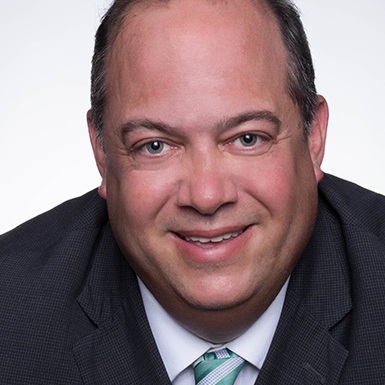Have A Retirement Savings Plan?
You Need A Tax Plan, Too

CFP MICHAEL MACKE, CFP
With tax season here, many filers are focusing only on their 2019 forms, thinking about how much tax they may owe, or hoping their calculations lead to a refund.
But it’s never too early, especially the closer one gets to retirement, to look further ahead and plan for tax scenarios that will likely change in your non-working years.
“When you retire, the ballgame changes completely with regard to taxes,” says Michael Macke (www.petrosplanning.com), vice president and co-owner of Petros Financial Group. “You’ll be withdrawing from taxable sources such as IRAs and pensions, and you’ll need to plan accordingly.
“Tax planning is the art of looking forward several years and putting strategies in place that minimize or reduce your taxable income as much as possible. And that’s especially crucial during your retirement years, when dollars you save in taxes are just as green as those you earned in the market or in a part-time job. It’s crucial considering that the Tax Cuts and Jobs Act of 2017 will retire after 2025, so people need to look at what their situation will be five years from now.”
Macke offers these tips for tax planning as you look toward retirement:
Consider your tax bracket. There are seven tax brackets – 10%, 12%, 22%, 24%, 32%, 35% and 37% – based on adjusted gross income (AGI). AGI is the total of all income sources during the year, minus any adjustments (deductions). Although the tax rates are subject to change when the Tax Cuts and Jobs Act of 2017 expires, Macke says knowing how your decisions on various money withdrawals in retirement could affect your tax bracket is essential. “Your AGI and tax liability will largely be determined by calculating which sources you’ll be withdrawing from and when,” Macke says. “You’ll need to know how to time withdrawals and how much. A Roth IRA, for example, isn’t subject to tax when withdrawn. It’s all about balancing your retirement needs with reducing your taxable income.”
Know your deductions. Knowing all the deductions for which you qualify will determine whether you should itemize or take the standard deduction ($12,200 for single filers, $12,200 for married taxpayers filing separate returns, and $24,400 for married taxpayers filing jointly). “Keep track of your itemized expenses throughout the year and project how some will change going forward, closer to retirement,” Macke says. “You may not have enough deductions in retirement to itemize.”
Take advantage of tax credits. These reduce your taxable income with a bonus: They subtract directly from any tax debt one ends up owing after having taken all the deductions they’re entitled to. “There are tax credits for college expenses, saving for retirement, adopting children, and for childcare expenses you might pay so you can go to work,” Macke says. “Again, these will likely change in your near-retirement years.”
Weigh your Social Security needs. “Some people are better off tax-wise putting off Social Security a few years,” Macke says. “The calculations for tax rates on Social Security haven’t changed since 1985, and thresholds are fairly easy to hit. You could pay tax up to 50% to 85% on your Social Security in a given year, depending on your AGI. You might go up a tax bracket if you’re taking Social Security and tapping into one or two retirement accounts. So one strategy might be withdrawing from an IRA and deferring your Social Security.”
“Tax planning for retirement is not a one-size-fits-all strategy,” Macke says. “It comes down to which accounts you withdraw from and when. Make sure your financial and tax teams are communicating with each other before any decisions are made.”
About Michael Macke, CFP®
Michael Macke (www.petrosplanning.com) is vice president, co-owner and principal advisor of Petros Financial Group, Tax & Wealth Advisors. He has been a Certified Financial Planner® practitioner since 2005 and has over 20 years of experience in banking and financial services. Macke is also founder and president of Petros Advisory Services, a registered investment advisor firm.
